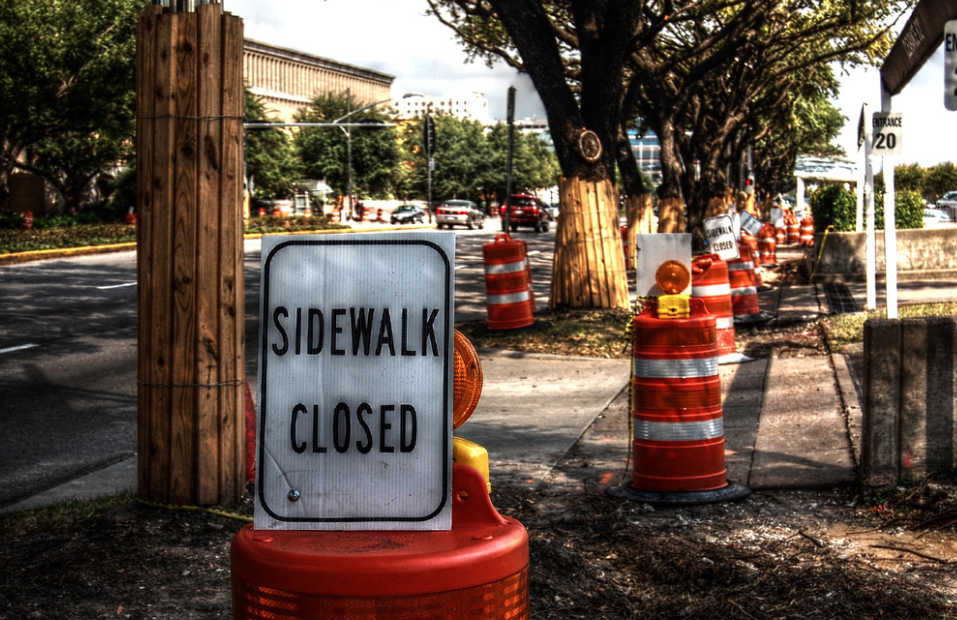As suburban as much of the Houston area feels, many residents say they want to live in more walkable, urban neighborhoods.
Fifty percent of Kinder Houston Area Survey respondents living in Harris County said they preferred "a smaller home in a more urbanized area, within walking distance of shops and workplaces," over a "a single-family home with a big yard, where you would need to drive almost everywhere you want to go."
But there's still a bit of a journey between a walkable Houston and today's landscape. More than a third of the people who want to live in an urban neighborhood in Harris County said they don't currently live there, based on the survey's findings.
One thing that's responsible for the gap? A lack of suitable sidewalks.
A new report released by Glasshouse Policy, an Austin-based think tank, says Houstonians' biggest transportation and mobility concern is sidewalks. The report tried to crowdsourcing feedback from residents to generate transportation recommendations.
"Increasing, maintaining, and connecting sidewalks need to be a bigger priority to make walking a more feasible way to get around," reads the report, which relied on a nine-month community engagement process in person and online through its Mobility Houston platform, which operated for five months. There, stakeholders could post, comment and vote on ideas about transportation and infrastructure.
A Houstonian's comment about the need to prioritize sidewalks proved to be the most popular submission the site received. Since most transit users walk to their bus or train stop, the report argues, it's critical for the city to improve walkability. "A neighborhood that isn’t walkable is also less transit friendly," reads the report.
Other popular ideas from the report include approving the city's pending master bike plan, eliminating minimum parking requirements in the city, implementing dynamic toll pricing and expanding rail to the suburbs. "There is no way the city can keep up with growth by building more roads," reads the second-most popular idea on the site. "We've tried that and it didn't work. I think we should focus on expanding the rail to outskirts of city."
In Houston, responsibility for maintaining sidewalks falls on the property owner, not the city (though the city recently approved changes designed to make that process less onerous). In certain cases, the city does take on maintenance and construction as part of its Safe Sidewalks Program, but the waiting period for most improvements is at least three years, according to the city's website.
For its part, METRO Houston says it recognizes the need for improved sidewalks, as well as bus shelters, to help connect users to transit, but its latest budget has to contend with lower sales revenues.
Check out the full report here.

